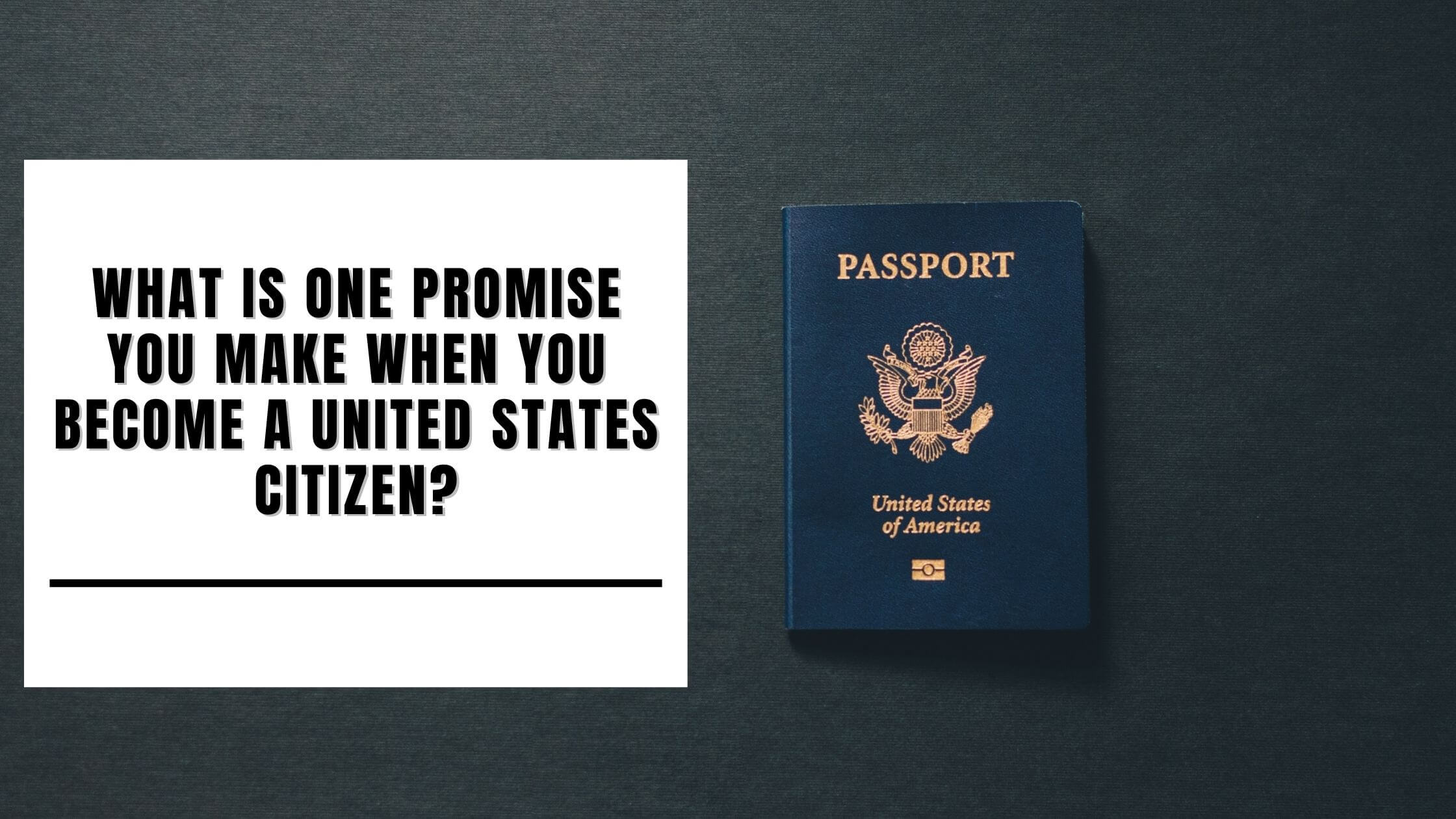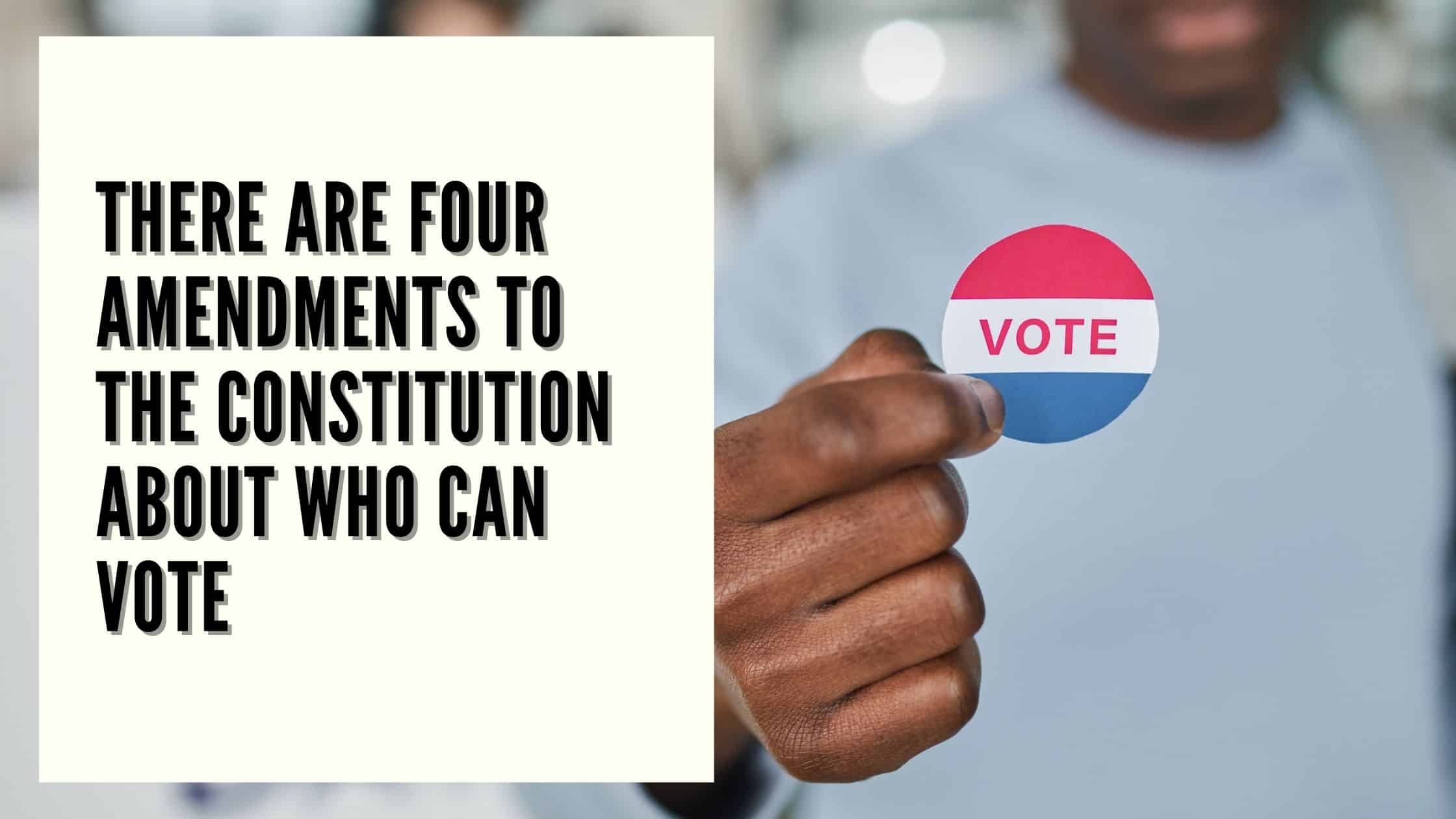Table of Contents
ToggleTo pass the US citizenship test, you will have to answer 10 of a possible 100 questions. The following question is from the USCIS test.
What is one promise you make when you become a United States citizen?
Acceptable Answers:
- give up loyalty to other countries
- defend the Constitution and laws of the United States
- obey the laws of the United States
- serve in the U.S. military (if needed)
- serve (do important work for) the nation (if needed)
- be loyal to the United States
The following is a full explanation of the USCIS question:
These terms are the simplified clauses listed in the Oath of Allegiance – the oath that everyone will take to earn citizenship at the end of the naturalization process. While only one answer is required in citizenship test questions, it helps to know all six to prepare adequately. So, what do they mean, and are all new citizens expected to recite these terms fully?
To Give Up Loyalty to Other Countries
Giving up loyalty to other countries in the naturalization process can be tricky for those with a deep love of their native land. Some immigrants come to America and seek citizenship to gain freedom from a former life in a country where they were persecuted or otherwise marginalized. In such cases, relinquishing loyalty to that nation can be freeing.

Get Smarter on US News, History, and the Constitution
Join the thousands of fellow patriots who rely on our 5-minute newsletter to stay informed on the key events and trends that shaped our nation's past and continue to shape its present.
However, others who move to the United States with a Green Card and end up settling down may feel positive ties to their homeland. In this case, giving up loyalty can be tricky as there is still a sense of patriotism, especially when visiting family on vacation or splitting their time between countries for their job.
Those that apply for full United States citizenship will agree to lose their rights as citizens in that other country, such as the right to vote in elections. The alternative option here is to apply for dual citizenship to maintain rights in both nations.
To Defend the Constitution and Laws of the United States
The concept of defending the Constitution and laws of the United States is an interesting one as it isn’t the same as just obeying the laws. This clause is in the oath the President takes and relates to the notion of defending the Constitution from enemies, both foreign and domestic. It is a sign of loyalty to American democracy and another act of patriotism.
To Obey the Laws of the United States
This is one of the more straightforward promises that makes a lot more sense from the perspective of new citizens at the naturalization ceremony. The promise to obey the federal laws of the United States means that citizens pledge to never willing do anything to break them or engage in criminal activity. It also requires the understanding that if they were to do so, they would face the same disciplinary action as any other United States citizen, such as the possibility of arrest, fines, or imprisonment as applicable to the nature of the crime.
It applies to all federal crimes, placing citizens on level playing field regardless of where they are in the United States or their immigration status. However, there is also the expectation to obey state laws as determined by their home state.
To Serve in the US Military
This promise is the most controversial and leads to some problems with the immigration process. Many who come to the United States are conscientious objectors and pacifists. They refuse to agree to serve in conflict on the grounds of being anti-war.
It is possible to request to opt-out of the parts that relate to bearing arms and/or non-combatant services. There is a distinction between the two where some may be willing to serve without being involved in active fighting. However, you will need to provide evidence that this goes against a religious belief or moral code.
It is important to remember that this promise has the addition of “if necessary” and only applies if the nation were to go to war and require a draft, as it did in the Civil War, World War I, World War II, and in more recent American history. It is down to the individual applying to become a naturalized US citizen whether to refuse on principle, object but still agree and take the risk, or be fully willing to serve the federal government.
To Serve the Country
This is where things start to get a little vague again. Serving a country tends to relate to serving in the military, so what does this additional clause mean?
The answer reads “serve (do important work for),” which doesn’t explain much other than the idea of citizens doing work that will, in some way, benefit the nation. Some take this to mean serving the nation politically, whether running for office or campaigning for candidates on a local or national level. Those that work for the American government contribute in their own way.
Others focus on ways they can serve the community and help the next generation, such as via educational or charity work. Then there is the idea that an American citizen who runs a business serves the country by boosting the economy and enriching lives. This one is the most interpretive and easier to agree to.
To Be Loyal to the United States
Do You Have To Say the Oath of Allegiance in Full?
Because of the issues with the promise about the military, there is the option to say a modified version of the oath. However, you will be expected to present evidence in support of these choices. There is also a choice to change some of the wording without the need for evidence. It is possible to substitute the words “on oath” with “solemnly affirm” and to leave out the “so help me God” part at the end.
Whether or not you change the wording at the end, those six promises are a crucial part of the final Oath of Allegiance. To complete the process and become a naturalized citizen, you will have to promise to defend the Constitution, obey the laws, serve your country in various ways, and denounce loyalty to a previous homeland.











